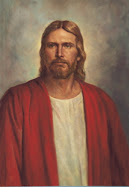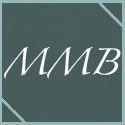Up until the last couple of years, this was a more unfamiliar hymn to me. I may have sung it once or twice in a congregation. I became a little more aware of it when I went on a John Newton info. kick (when the movie Amazing Grace came out) and learned he had written this hymn.
But I did not become up close and personal with it until it became one of my hymns in my organ lessons. WITH. THE. PEDAL. That usually means instead of a few weeks on the hymn, it will likely be months. And it was. Oh my word. I haven't counted, but I think this hymn might have actually taken an entire year. The sad thing with that is I am extremely familiar with all 4 parts, but still not so much on the words. But I know I've had the ward sing it. I know even more so because that happened to be one of the Sundays I had to sub as the organist. And when I play for Sacrament meeting, I do not bother with the pedal at all. Too many mistakes and slowing downs that I think the congregation would actually notice. The funny thing is, I started playing this hymn for the congregation without the pedal, and it felt like an entirely different hymn! My left hand had no idea what to do, trying to play the bass part (with the tenor, too!) for the first time. It was so confused, it wasn't as lovely as I could have tried to make it. I should have stuck with playing the pedal! After that many months, it couldn't have been worse than what I ended up playing with my hands. Oh well. One truly never knows with the organ until one is actually playing. Very interesting instrument, that. And one big thing to note, even after all that time of practicing the hymn, I still like the tune. Written by Haydn, so of course it is great!
Looking over Newton's lyrics, it is a song about Zion. Its beauties, riches, and blessings and how those who live their are disciples of our Redeemer. Lines I like:
*"He whose word cannot be broken"
*"See! the streams of living waters, Springing from celestial love"
*"Jesus, whom their souls rely on"
From the history book
The opening line comes from Psalm 87:3. The book refers to Newton's early life and how his sincere turning of his heart would enable him to envision such righteous blessedness as he describes in his hymn. This text was first published in 1779. This was included in the 1835 hymnal, with 10 short verses. In 1950, they reduced that to 7 verses and put in the choir section. It had a different hymn tune which was harder to sing, and thus never sung. The current hymnal combined 6 of the verses into 3 longer ones, and put with the more familiar tune that it was sung with. As Davidson describes it, "one of the most elegant and uplifting hymn melodies in our book." I think that is a safe description.
Haydn first wrote this tune as an Austrian Hymn in honor of the Emperor. Later he used the melody in the second movement of his String Quartet opus 76 no. 3, known as "Emperor Quartet." Which meant I had to go find that!




No comments:
Post a Comment